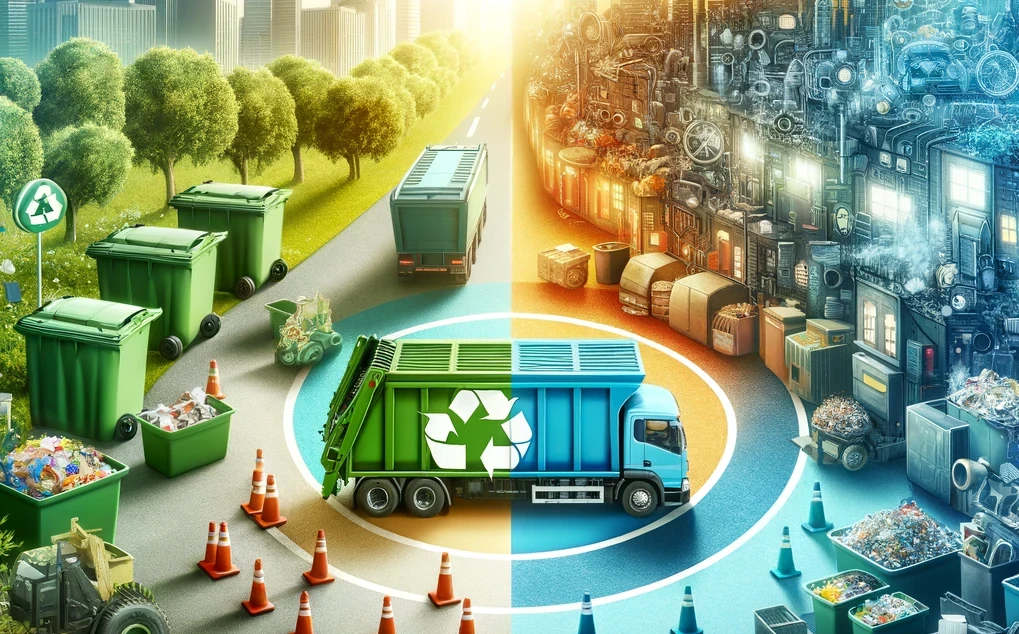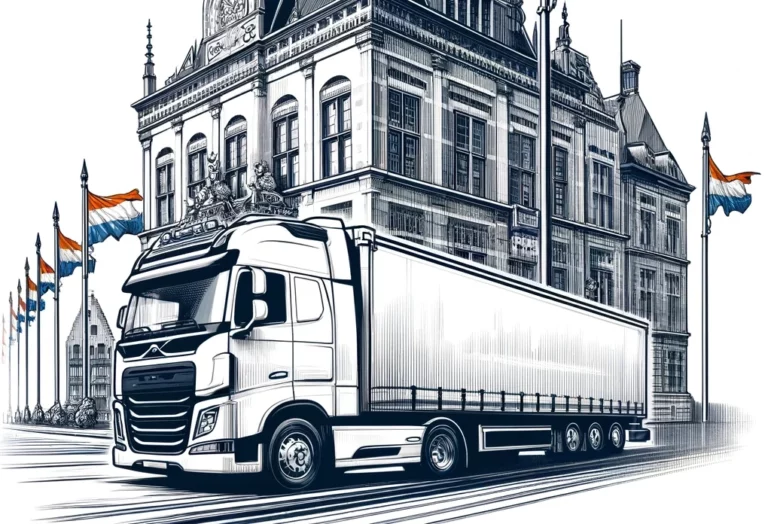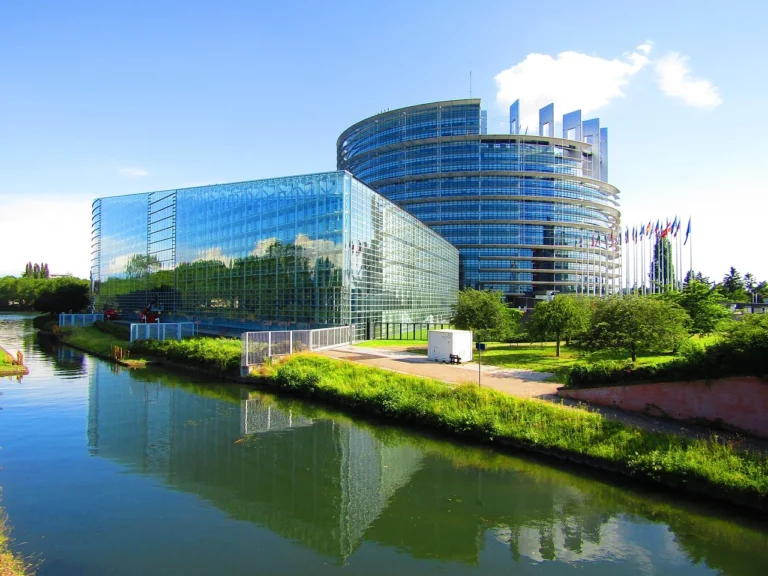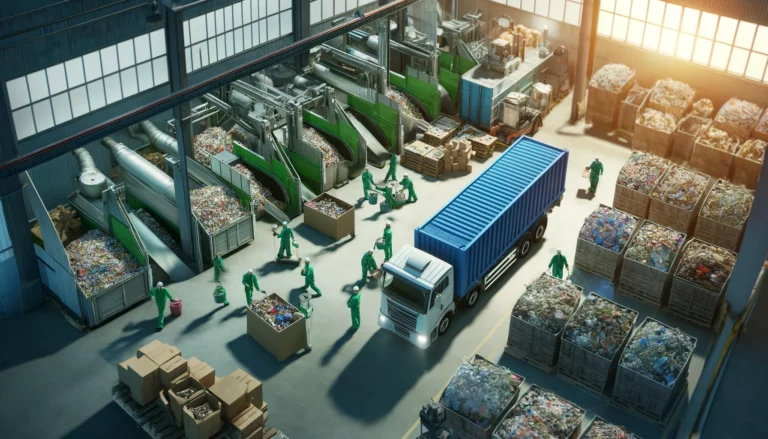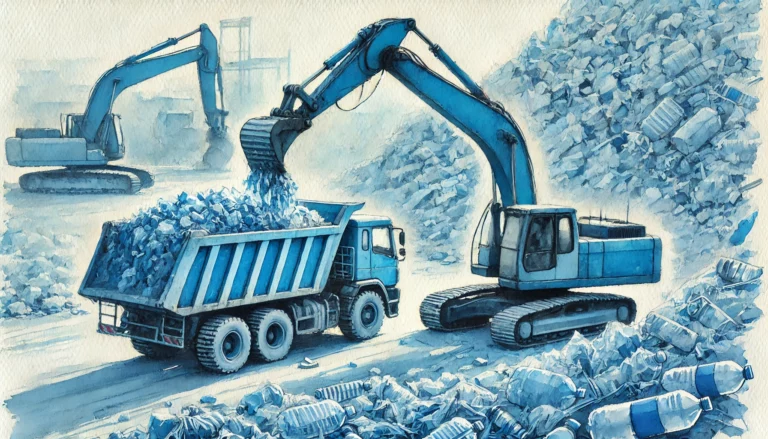Waste transport and recycling – why their coexistence is crucial?
Discover the secret behind Sweden and Belgium’s top-ranking waste management and recycling systems: a sophisticated, regulated waste transport network. Delve into how these nations have mastered the art of turning waste into resource through innovative transport and stringent regulations, setting a global standard for sustainability.
In the quest for sustainable living, Sweden and Belgium emerge as beacons of excellence in waste management and recycling. Their journey from the basic recycling programs of the past to today’s sophisticated systems offers valuable lessons on the transformative power of integrating waste transport with recycling efforts. This article dives into the pivotal role that waste shipment has played in these nations’ environmental achievements, highlighting the importance of regulatory compliance through waste transport permits and licenses in maintaining these high standards.
Sweden and Belgium: pioneers in recycling
Sweden and Belgium are pioneers in waste management and recycling, known for their forward-thinking strategies. These include thorough waste sorting, cutting-edge technology, and strong public engagement. For instance, Sweden impressively recycles over 99% of household waste, leaving less than 1% for landfills. Belgium isn’t far behind, recycling around 64% of its waste. This ranks it among Europe’s top recyclers, according to the European Environment Agency.
The recycling journey in these countries has evolved significantly. Starting in the 1970s and 1980s, growing environmental awareness sparked initiatives to cut landfill usage and boost recycling.
Revolution for the good cause
Sweden’s journey towards sustainability began in the 1970s. It wast the beginning of what is now known as The Swedish Recycling Revolution. This movement emerged in response to growing environmental concerns and the recognition that landfill use was unsustainable. Sweden responded by significantly investing in recycling infrastructure and waste-to-energy technologies. This strategy was not just about reducing waste; it aimed to repurpose it as a valuable resource.
Over the years, this initiative has reshaped Sweden’s approach to waste. It led to one of the world’s highest recycling rates and a dramatic reduction in landfill use. The revolution’s impact has been significant, establishing Sweden as a leader in sustainability and inspiring other countries to revise their waste management strategies.
Through innovative policies and encouraging public participation, Sweden has showcased the environmental and economic advantages of shifting from a linear to a circular waste management model.

Belgian approach to recycling
In the early 1990s, Belgium took a major leap towards sustainability. The nation introduced the “Flanders Waste Decree” in 1981, pioneering waste reduction and recycling. This early legislation laid the groundwork for Belgium’s recycling revolution. By the mid-1990s, a robust system for sorting and collecting waste was in place. Belgium introduced colored bags for different waste types, simplifying recycling for its citizens.
As the new millennium approached, Belgium further boosted its recycling efforts. Early 2000s policies, like Extended Producer Responsibility (EPR), made producers responsible for their products’ end-of-life. Consequently, product design improved, and recycling rates soared. Through smart laws, public participation, and infrastructure investment, Belgium achieved top recycling rates in Europe. This shows how targeted strategies can create lasting environmental benefits.
The symbiotic evolution of waste transport and recycling
Critical to the success of Sweden and Belgium’s recycling programs has been the development of an efficient waste transport system. The movement of waste from collection points to recycling facilities is a complex logistical operation, requiring specialized vehicles, routes, and handling procedures to ensure that recyclables are processed effectively.
Over the years, as recycling efforts expanded, the demand for more sophisticated waste transport solutions grew. Innovations such as compartmentalized trucks that can handle multiple types of recyclables in a single trip, and advanced logistics software to optimize routes and reduce emissions, have been instrumental. These advancements not only improved the efficiency of recycling operations but also contributed to broader environmental goals by minimizing the carbon footprint of waste transport.

The importance of waste transport licenses
A key aspect of managing an effective waste transport system is regulatory compliance, emphasized through the requirement for waste transport licenses. They are crucial in ensuring that waste transport operations adhere to environmental standards and safety regulations. In Sweden and Belgium, obtaining a waste transport permit or waste license is a stringent process, designed to vet operators for their ability to handle waste responsibly and sustainably.
The relevance of these permits cannot be overstated. They serve as a control mechanism, ensuring that only qualified operators can engage in waste transport. This helps to prevent environmental pollution, illegal dumping, and other malpractices that could undermine recycling efforts. Moreover, permits and licenses are continually updated to reflect the evolving nature of waste management practices, ensuring that waste transport remains in harmony with the latest recycling technologies and methodologies.
Driving sustainability forward
Sweden and Belgium shine in recycling and waste management. They show how crucial it is to weave waste transport into the recycling strategy. By carefully linking collection, transport, and processing, they’ve set global sustainability standards. Their success rests on strict rules, including necessary permits and licenses.
Countries aiming to boost recycling and cut environmental harm can learn much from these nations. Achieving sustainability is complex. It involves improving recycling technologies and the systems behind them, like waste transport. Recognizing its key role and managing it within a strict, efficient framework can lift waste management and recycling results.
Sweden and Belgium’s experience teaches us a vital lesson: sustainability needs a broad approach. Proper waste management goes beyond disposal or recycling. It means optimizing every step, from collection to processing, for environmental protection. With the right policies, tech, and public support, we edge closer to a zero-waste world.
***
Do you want to know how other countries are doing in terms of waste management? Read the following article::

